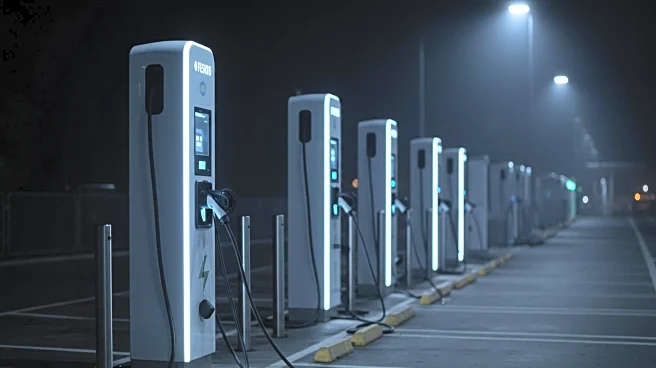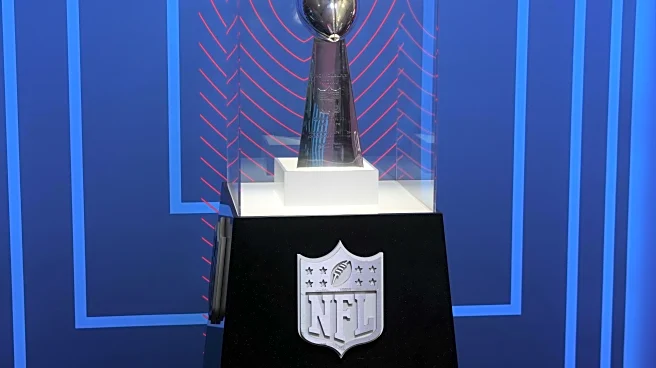What is the story about?
What's Happening?
The Trump administration has officially ended the emission credit market, significantly affecting electric vehicle (EV) manufacturers like Tesla and Rivian. This decision follows the passing of the 'Big Beautiful Bill,' which removes federal tax credits for electric vehicle purchases and halts penalty enforcement for automakers with lower average fuel economy. The National Highway Traffic Safety Administration (NHTSA) has ceased issuing compliance letters, effectively eliminating the market for credits under the Corporate Average Fuel Economy (CAFE) standard. Automakers previously relied on these credits to offset fines for non-compliance with fuel economy standards. The Zero Emission Transportation Association (ZETA) has filed a petition in the U.S. Court of Appeals to compel NHTSA to resume issuing compliance letters. Rivian's director of public policy, Christopher Nevers, reported a $100 million revenue loss due to the inability to finalize credit deals.
Why It's Important?
The cessation of emission credits is a significant setback for the U.S. electric vehicle industry, which has been relying on these credits to support financial viability and growth. Tesla, which reported $2.5 billion in revenue from regulatory credits over the last four quarters, is particularly affected, as a substantial portion of these revenues is estimated to come from U.S. sales. The policy change may slow down the adoption of electric vehicles in the U.S., as automakers face increased financial pressure without the support of emission credits. This could lead to a competitive disadvantage for U.S. automakers compared to international counterparts who continue to benefit from supportive policies. The decision also raises concerns about the U.S.'s commitment to reducing pollution and transitioning to cleaner transportation options.
What's Next?
The NHTSA has indicated that it will review the CAFE standards to make cars more affordable, with plans to resume issuing compliance letters once the process is complete. However, there is skepticism about whether this will occur under the current administration. The outcome of ZETA's petition in the U.S. Court of Appeals could influence future policy decisions and potentially restore some form of emission credit system. Automakers and industry stakeholders are likely to continue advocating for policies that support the growth of the electric vehicle market.
Beyond the Headlines
The elimination of emission credits may have broader implications for environmental policy and corporate responsibility in the U.S. The move could be seen as a shift away from incentivizing cleaner technologies, potentially affecting the country's ability to meet international climate commitments. It also highlights the tension between economic interests and environmental goals, as automakers navigate changing regulatory landscapes. The decision may prompt discussions on the role of government in supporting sustainable industries and the long-term impact on public health and environmental quality.
















